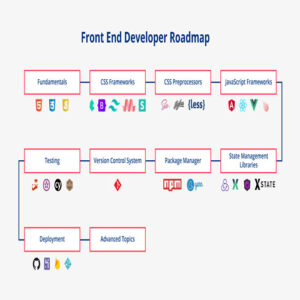Digital marketing has become an indispensable aspect of modern business strategies. As companies navigate the ever-evolving online landscape, the need to measure and analyze performance becomes increasingly critical. Key Performance Indicators (KPIs) serve as the compass for digital marketing campaigns, guiding businesses toward success and helping them stay ahead of the competition.
Understanding Digital Marketing KPIs
Website Traffic and User Engagement Metrics
a. Traffic Sources
Understanding where your website traffic comes from is fundamental. KPIs such as organic search traffic, direct traffic, and referral traffic shed light on the effectiveness of your online presence and marketing efforts.

b. Bounce Rate
This metric indicates the percentage of visitors who leave a site without navigating beyond the landing page. A high bounce rate may suggest issues with site content, design, or user experience.
c. Pageviews
Tracking the number of pages viewed per session provides insights into user engagement and the effectiveness of your website’s internal linking structure.
2. Conversion Metrics
a. Conversion Rate
This KPI measures the percentage of visitors who take a desired action, such as making a purchase, filling out a form, or subscribing to a newsletter. A high conversion rate signifies the effectiveness of your calls-to-action and overall user experience.
b. Cost per Conversion (CPC)
Understanding how much it costs to acquire a customer is crucial for optimizing marketing budgets. Calculating the cost per conversion helps allocate resources efficiently.
3. Social Media Metrics

a. Engagement Rate
On social media platforms, engagement is key. Likes, shares, comments, and clicks all contribute to the engagement rate, providing insights into the effectiveness of your social media content.
b. Follower Growth
Tracking the growth of your social media following indicates the success of your content strategy and brand awareness efforts.
4. Email Marketing Metrics
a. Open Rate
The percentage of email recipients who open a campaign is a vital metric. A high open rate suggests that your subject lines are compelling and your audience is interested in your content.
b. Click-Through Rate (CTR)
This metric measures the percentage of recipients who click on links within an email. A high CTR indicates that your content resonates with your audience.
5. Search Engine Optimization (SEO) Metrics
a. Keyword Rankings
Monitoring your website’s ranking for relevant keywords on search engines helps assess the success of your SEO efforts and identifies areas for improvement.
b. Backlink Quality and Quantity
Quality backlinks contribute to higher search engine rankings. Monitoring both the quantity and quality of backlinks is essential for a robust SEO strategy.
6. Customer Lifetime Value (CLV)
Understanding the long-term value of a customer helps prioritize marketing strategies that focus on customer retention and loyalty.
7. Return on Investment (ROI)
Determining the overall effectiveness of your digital marketing efforts, ROI compares the gains from your marketing campaigns against the costs incurred.
Choosing the Right KPIs
Selecting the right KPIs requires a nuanced understanding of your business goals and the specific objectives of each digital marketing campaign. Tailoring KPIs to align with your overarching business strategy ensures that efforts are focused on metrics that truly matter.
Implementing Data-Driven Decision-Making
The real power of digital marketing KPIs lies in their ability to inform strategic decision-making. Regularly analyzing KPI data empowers businesses to identify trends, adjust strategies, and capitalize on opportunities.
Leveraging Technology for KPI Tracking
As the digital landscape continues to evolve, leveraging advanced analytics tools becomes increasingly important. Cutting-edge technologies enable real-time tracking, providing marketers with up-to-the-minute insights to make informed decisions.
Conclusion
In the fast-paced world of digital marketing, KPIs serve as the compass that guides businesses toward success. From website traffic and conversion metrics to social media and SEO indicators, the comprehensive tracking of KPIs empowers businesses to stay ahead in the dynamic digital landscape. By understanding, selecting, and leveraging the right KPIs, businesses can unlock the full potential of their digital marketing efforts and achieve sustainable growth in the digital era.










